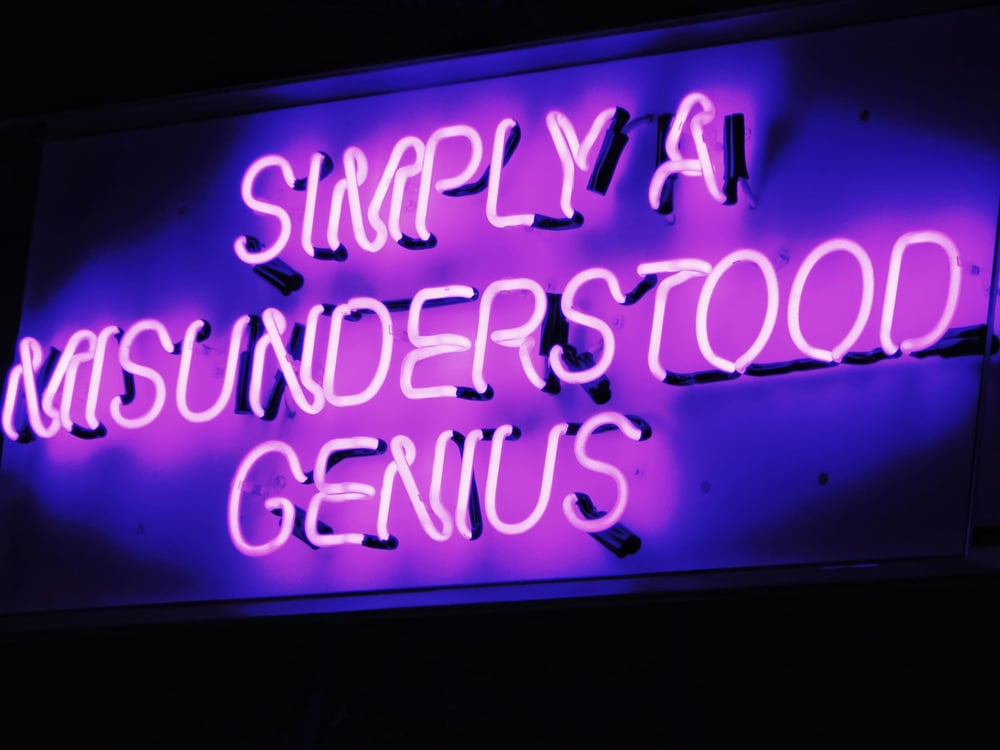Five ways to name your fantasy world (and why it’s important)

Coming up with a name for your fantasy world can be a tall order. Some writers absolutely hate coming up with names for places, while others live for it. I’m going to be honest, I definitely fell in the former camp when I first started writing.
That’s back when I didn’t understand the purpose behind naming made-up worlds and locations. Back when I thought it was “just a name.” And if you’re coming into this thinking that same way, no judgment here, friend. I’ll make a convert out of you, yet.
In this article, we’re going to talk about:
- Why fantasy world and location names are important
- Five different ways to come up with your fantasy world name
And, before we get too far, make sure to bookmark this link to help with all your fantasy worldbuilding needs. Whether you come up with a name before you start writing or after, you need an awesome world to go along with your story.
Why Do Your Fantasy Location Names Matter?
Let’s revisit that “it’s just a name” notion. Sure, your world and location names can just be names. Technically, you can write an entire book without ascribing meaning behind anything.
But it’s when you start adding meaning to things that your world becomes a living, breathing entity that engages your reader. It’s how you turn seemingly inconsequential details into all those layers that make your book a reader’s favorite.
Enough philosophy, though. Here are a few reasons why the names of your made-up places matter.
1. It shows the impact of culture and history. Think about real world names; many are named after the cultures or people who live there. Towns and cities are named after historically notable people.

2. Languages can play a role. What if distinct languages label your world or cities differently? For example, Laos was named by French colonizers, but it is called Muang Lao or Pathet Lao in Laotian. “Laos” is named so because of the three Lao kingdoms, but both Muang Lao and Pathet Lao simply mean “Lao Country.” If you have a constructed language (conlang) in your world, how does that affect things?
3. It can add seamless depth to your world. If your location names don’t blend with the rest of your world, they’ll stick out like a sore thumb and ruin your reader’s immersion (which is incredibly important in fantasy writing). Oppositely, choosing the perfect names can flow smoothly with the rest of your worldbuilding, creating a perfect, immersive experience.
Okay, now onto the show. Let’s figure out how to create your perfect fantasy world names.
Try a Generator to Get Ideas
Sometimes all it takes to get the fantasy names flowing is some inspiration. Maybe the perfect name is floating around in your creative mind or you just need a little boost to make it appear.
For example, a random town name generator came up with “Winterham” for me.
Okay, but my icy town sits near the top of a tall mountain that’s revered as a holy site for their god. A name for a tall tower or monument could be a spire, so how about Winterspire?
Not bad, but not perfect (for me at least).
Coldspire feels a lot better—one less syllable and it still gets the idea of a chilly, elevated location.
It can be that easy to come up with a meaningful name based on a random word generated on the internet. Here are some websites to get some ideas:
- Fantasy Name Generators for Towns and Cities
- Codex Nomina - Has options for many different places, including planets, cities, camps, taverns, deserts, and more
- The Story Shack - Also has a handful of different options
- Mithril and Mages City Names - Pick a real country and get actual city names to get some cool ideas!

Think of Fantasy Names Phonetically
Before we dive too deep into the tips and tricks of creating names for fantasy worlds, let’s establish one solid rule here: always think of your fantasy names phonetically.
A little clearer: think of how your names are pronounced and how easily that can translate via the written word.
As fantasy authors, a lot of us think that the more “exotic” or unconventional a name, the more fantasy-esque it is. Throw some consonants next to each other that normally don’t work, toss in some extra hyphens and vowels, badda bing, badda boom, you have a fantasy name.
Except you don’t. You have a tossed word salad of a name that doesn’t make any sense.
So, while you’re thinking about all the other tips in this article, consider how your names sound and how easy it is for your reader to pronounce. The easier to pronounce, the better.
That’s not to stifle your creativity or say that readers won’t mispronounce names (they will), but spelling a name as Quendhauxr instead of Kendor (without a cultural or linguistic reason) is asking for frustrated readers.
Implementing Conlangs Into Names
An exception to this is using conlangs as you name your world. This ties your made-up culture into your made-up places. If this is the case, you need to find ways to educate your readers on how that language works.
This needs to be done organically by showing the rules to your reader through actions and events rather than infodumping on them.
For more info on conlangs, click here.
Think of Fantasy Names Etymologically
One of the most common and effective ways to name your fantasy worlds and locations is to think etymologically. For a quick refresher, etymology is the study of a word’s origins and how it has changed over time.
There are a couple ways you can use etymology in your worldbuilding. For some examples, I’m going to use some Dungeons & Dragons references (and nothing short of a nat 20 CHA roll can stop me).
We can approach names literally, like the city of Baldur’s Gate, so named after the protective wall that was started by the famous hero Balduran.
Or, for another rather straightforward example, let’s look at Neverwinter. Though the city is in the midst of a freezing climate, the river that runs through it is heated by fire elementals. As a result, permanent heat stops the river and city from freezing, thus earning it the name Neverwinter (because it’s… never… winter).
But you might derive some etymology from a made-up language in your world.
The main continent in the Forgotten Realms—arguably the most popular world in D&D—is Faerûn. Clearly this isn’t a word in English, right? In D&D lore, it’s a derivative of Faerie, the ancestral homeland of elves. The continent was named Faerûn as an homage, but is changed slightly because of culture.
Let’s pull these all together now into some concrete tips for etymological naming.
Be literal - A staple of fantasy is literal names that sound—to be blunt—really cool. Baldur’s Gate. Middle-earth. Black Water. London Below. As long as it has some meaning behind it, something simple and literal can sound very wondrous. You can also be literal in a conlang; Mordor means “the black land” or “the dark land” in Tolkien’s invented language, Sindarin. Mor means dark or black, while dor means land (as seen in Gondor—stone land—and Doriath—fenced land).
Be descriptive - In the same vein as being literal, use your name to describe the location or the world. Neverwinter. Discworld. Neverland. Wonderland. All of these are fairly literal, but they also describe aspects of their world (eternal warmth, a literal disk-shaped world, never aging, a world of wonder). Use that idea to bolster your worldbuilding.

Let language evolve - If you want to go deep into your lore, you can let language—whether made-up or a real script—evolve. This is what happened with Faerûn, but consider how it can be applied to some other names we’ve covered. Neverwinter can become Ne’erwinter. Baldur’s Gate might one day become Balduzgat (or something along those lines). Let the people and culture of your world shape where they live.
Think of Fantasy Names Historically
Just like in real life, history plays a big part in naming our towns, cities, and worlds. Even the example of Baldur’s Gate drew on recent history.
Using historical references, especially people or groups, can be a great way to add meaning to your fantasy location names while helping you flesh out the history of your world even more.
Arendelle, from Disney’s Frozen franchise (enjoy having Let it Go stuck in your head now) is named after its founder, Lord Aren.
Ched Nasad, an Underdark city from D&D (listen, this is the world I know best), is named after its founding family, House Nasadra.
Consider historical events that could affect the names of places. If a meteor lands somewhere, maybe the locals call it Heavenfall.
Nowhere had a name until someone came along and named it. Let the people who discovered it or the events that occurred before its naming help you find that perfect moniker.
In order to do that, though, you need to have history to draw upon. If you’re using “real world fantasy worldbuilding,” which means you’re using our actual known world and adding fantasy on top of it, you have a lot of recorded history to play with.
If you’re building a second world—one completely of your own devising—then creating that history is on you. But no pressure.
Think of Fantasy Names Humorously
Sometimes the funniest option is the best one. Maybe not in all circumstances—like when your partner is angry at you—but humor can be useful in worldbuilding.
In some cases, places will get named as a joke—then that name sticks. That joke could be made in good fun, like a “spooky” woodland called The Spooky Forest. Or it could be dark comedy like Flea Bottom from Game of Thrones, which is a slum in King’s Landing, or Last Stop Retirement Community, which is delightfully grim.
Even in real life, there are some actual towns with funny names. One that always jumps to mind is Saint-Louis-du-Ha! Ha!, a municipality in Quebec, Canada. The “Ha! Ha!” part is thought to come from the French term ha-ha, indicating a ditch or blind fence. Even that term was thought to come from the son of Louis XIV of France’s son who, when warned of a ditch during a walk, said “Ha ha, is that what I’m supposed to be afraid of?”
There’s just layers of humor here that go into making a unique name like Saint-Louis-du-Ha! Ha!.
Bear in mind that the humor should be relevant and in line with your genre. A dark fantasy might have something like Flea Bottom but including “Ha! Ha!” in a name would make it stick out like a sore thumb.
Everything Should Have a Purpose
If you take anything away from this article, it should be that everything in your fantasy novel—especially the name of your world and towns—should be there for a reason. What purpose does it serve the story? What is the why behind it all?
This will be how you take your fantasy story from good to great. It will enhance your worldbuilding and engross your reader so they must go deeper.
And Dabble helps you do just that. With easy drag-and-drop notes just one click away from your manuscript, you can worldbuild to your heart’s content, creating folders upon folders of notes on the lore, history, and culture of your fantasy world.
Get all that with automatic cloud syncing, writing from anywhere on any device, the Plot Grid, and so much more. And you can try it all out for fourteen days, at absolutely no cost, by clicking here. Heck, we don’t even ask you to put in your credit card details to get your trial.
So get crafting those fantasy places, and let’s see what kind of great names you can come up with.









